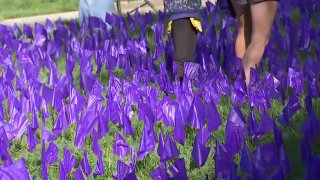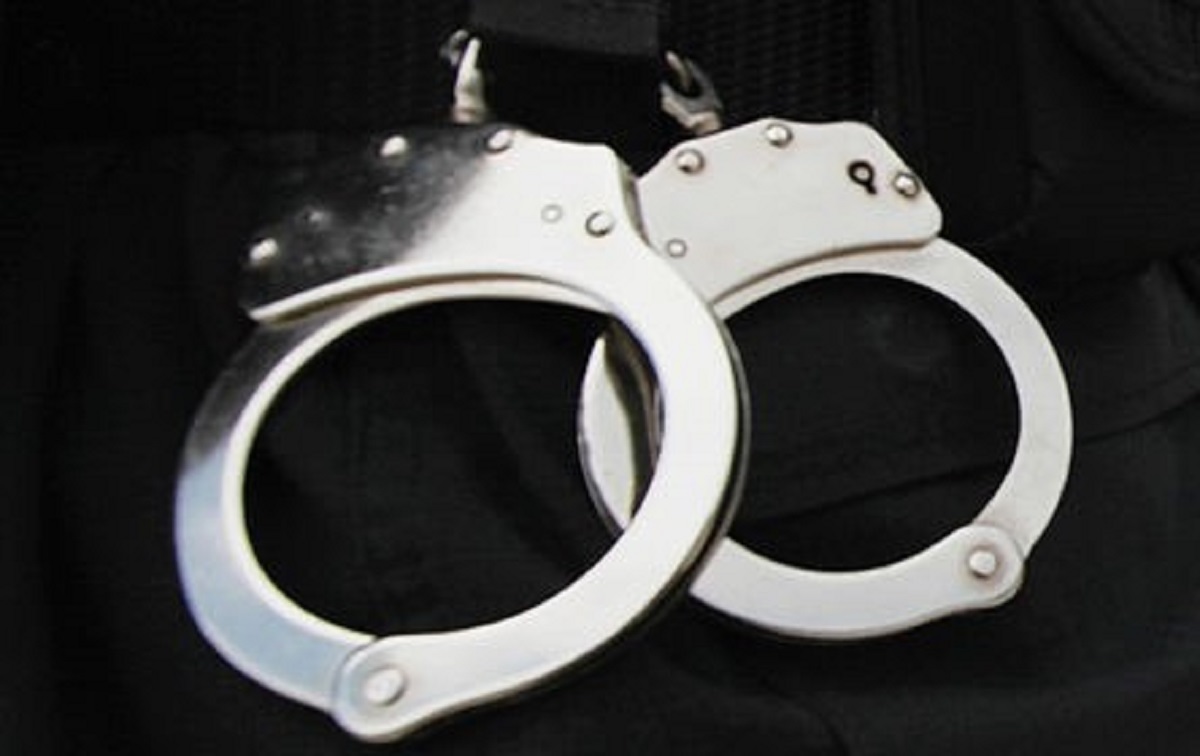
File photo of purple flags across the Boston Common, honoring those lost to opioid overdoses
Overlooking a sea of more than 22,000 purple flags planted on Boston Common signifying the toll of the opioid crisis in Massachusetts, Dana DiSenso reflected Thursday on her own journey to recovery as she urged state lawmakers to pass legislation that would enable cities and towns to open overdose prevention centers.
DiSenso, who will soon reach six years in recovery from substance use disorder, said she cannot even count on one hand how many friends she's lost to overdose deaths. There was one year when she lost more than a dozen people and couldn't make it to every funeral, said DiSenso, who now works as a peer support patient navigator in New Bedford.
Stream NBC10 Boston news for free, 24/7, wherever you are.
"I truly think getting the overdose prevention centers is the most important thing we could do at this point -- having a place where people know that they can go to use safely because people are going to use no matter what," DiSenso said. "I've worked in needle exchange programs, and I've watched people come in and get safe supplies and build rapport with the folks working there to the point where they were able to feel safe, to ask for help, to go to treatment. I have friends that are alive because of safe needles, because of Narcan, because of utilizing those programs."
People "don't have to die before they can find recovery," DiSenso added, as she stood beside the heartrending display of fluttering purpled flags planted by the Department of Public Health, Boston Medical Center and people affected by the opioid epidemic. There are a total of 22,125 flags, representing lives lost to overdoses from 2012 to 2023, a DPH spokesperson said.
Get updates on what's happening in Boston to your inbox with our News Headlines newsletter.
Massachusetts has recorded more than 2,000 opioid-related overdose fatalities each year since 2016.
The flags, planted Thursday morning ahead of International Overdose Awareness Day on Saturday, will be on display through Sept. 1, according to BMC. Visitors can place stickers on flags in honor of loved ones lost to overdoses and decorate rocks for a rock garden memorial, BMC said.
Against the backdrop of the State House, the massive display also poignantly hints at unfinished business on Beacon Hill, where lawmakers ran out of time at the end of formal sessions to strike a compromise on addiction and substance use disorder legislation.
Local
In-depth news coverage of the Greater Boston and New England area.
Unlike the House, the Senate approved a controversial policy -- which is supported by DPH -- that would enable municipalities to open safe injection sites, where trained professionals can intervene and prevent overdoses as people use pre-acquired, illicit substances.
"I think we're in need for policy that is going to support people in recovery and support people who are actively using," DPH Commissioner Robbie Goldstein told the News Service when asked about the stalled legislation. "And there are ways to do that through the State House, and I think we continue to want to work with our colleagues in the Legislature to get a bill over the finish line and get that out. But our Bureau of Substance Addiction Services is doing this work every day, and we're going to continue to do the work and push forward with the policy that we know is going to save lives, and protect people, and get people into care."
Even without legislative action, Goldstein said DPH is able to boost access to recovery coaches and deploy harm reduction services. DPH in June said officials had distributed more than 196,500 naloxone kits since 2023, in addition to more than 504,000 free fentanyl test strip kits to providers and community organizations.
New York City is already home to two overdose prevention centers, which are technically illegal under federal law. DiSenso pointed out a center is also slated to open in Rhode Island.
"If all these other places can do it, so can we," DiSenso said. "And I think it's just important for lawmakers to keep the focus on the lives of all the residents of Massachusetts, including people that use drugs."
As she looked at the purple flags, Deirdre Calvert, director of the Bureau of Substance Addiction Services, said it breaks her heart that "we are still having this amount of deaths."
"We declared a public health emergency in 2014 under Deval Patrick, and during that time, we've lost more than 20,000 individuals to overdose -- really, in my opinion, due to stigma, discrimination and overly aggressive federal policies in some respects," Calvert said.



